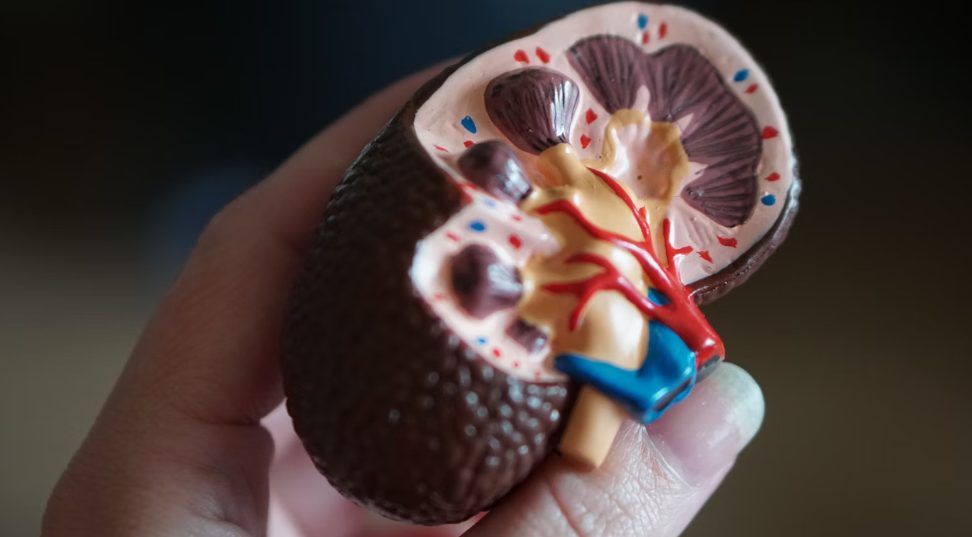
@ShahidNShah


Kidney health is vital for maintaining overall wellness. Did you know that your kidneys play an essential role in filtering waste, balancing electrolytes, and regulating blood pressure? But with so many daily demands on these essential organs, it’s easy to overlook their importance—until something goes wrong.
Yet, recent research in nephrology has shed light on new ways to improve and maintain kidney health. Doctors and researchers are sharing these insights to help individuals take proactive steps to prevent nephrology-related issues.
This article will cover some of the key findings and offer practical tips based on the new research. So, without further ado, let’s dive in to know!
One of the most critical aspects of kidney health is diet. Recent researches led by doctors emphasize the importance of a kidney-friendly diet. It simply points towards reducing the strain on kidneys while ensuring proper nutrient intake.
Their studies have found that limiting sodium, phosphorus, and saturated fats can be beneficial for people at risk of kidney disease.
The excessive intake of sodium can lead to high blood pressure. It directly impacts kidney function. The doctors suggest that to cut down on sodium levels, the patients should eat less processed foods. At the place of that, they must add fresh fruits, vegetables, and lean proteins to their diet.
All in all, lowering salt consumption can significantly decrease the chances of developing chronic kidney disease.
Phosphorus is found in dairy products, meat, and certain processed foods. Doctors suggest limiting foods high in phosphorus can slow kidney damage progression.
Doctors have asserted that patients must avoid oils high in trans fats and saturated fats, commonly found in cooking oils and butter. Instead, they should switch to safe alternate options with less than four grams of saturated fat per tablespoon and promote overall well-being.
The researches reveal some of the best cooking oil for kidney health, such as olive, avocado, or canola oil. These help lower bad cholesterol, reduce inflammation, and improve nutrient absorption.
Note: Various NGOs and organizations also offer valuable programs and resources for kidney issues, both online and in person. These studies spread awareness among people about nephrology.
Staying well-hydrated is crucial for kidney health, but there’s more to it than just drinking enough water. Recent studies highlight the importance of balanced hydration. The reason is that overhydration can put a strain on the kidneys, while dehydration can lead to kidney stones and other complications.
A good rule of thumb is to drink when you’re thirsty. Also, having light yellow urine is an indicator of good hydration.
Another insight from kidney health research concerns protein intake. High-protein diets have been linked to kidney strain, especially in individuals with early-stage kidney disease.
Doctors certify that protein is essential for overall health. But, those with early signs of kidney issues should focus on getting their protein from plant-based sources. They can have beans, lentils, and nuts, which are gentler on the kidneys than animal proteins.
Doctors are exploring the benefits of certain supplements that could support kidney health. For example, antioxidants like vitamins C and E are being studied for their potential protective effects on the kidneys.
Doctors, however, advise taking these supplements as prescribed to avoid overloading the kidneys.
Exercise isn’t just good for your heart and muscles—it is also important to maintain kidney health. Research shows that regular physical activity helps:
For individuals with early-stage kidney issues, exercise can also help in disease regression. According to doctors’ recommendations, moderate exercise, like walking, swimming, or cycling, is good. However, one must consider one’s individual needs before making an overall decision.
Two of the biggest risk factors for kidney disease are uncontrolled blood sugar and high blood pressure. Several studies emphasize the importance of regular monitoring and management of these two conditions to prevent or slow kidney damage.
Doctors encourage individuals with high blood pressure or diabetes to work closely with their healthcare providers to manage these conditions. It can be done through medication, lifestyle changes, and regular checkups.
It is evident that smoking and excessive alcohol consumption are bad for overall health. The research links both directly to kidney damage. Smoking reduces blood flow to the kidneys, which limits their ability to function properly. Alcohol, when consumed in excess, can lead to dehydration, high blood pressure, and liver damage. This, in turn, puts additional strain on the kidneys.
In this direction, doctors stress quitting smoking and reducing alcohol intake as essential steps to preserving kidney health.
Maintaining kidney health is essential for overall well-being, and recent research offers several ways to improve and protect kidney function. Moreover, the research is consistent in this field and viable for finding more effective solutions in the future.

What You Should Know: – A recent survey by Tasso, Inc., a provider of patient-centric blood collection solutions reveals 33% of patients delay or avoid diagnostic blood tests, with the top …
Posted Oct 21, 2024 Clinical Diagnostics & Research Tools Health Surveys
Connecting innovation decision makers to authoritative information, institutions, people and insights.
Medigy accurately delivers healthcare and technology information, news and insight from around the world.
Medigy surfaces the world's best crowdsourced health tech offerings with social interactions and peer reviews.
© 2025 Netspective Foundation, Inc. All Rights Reserved.
Built on Apr 21, 2025 at 5:57am